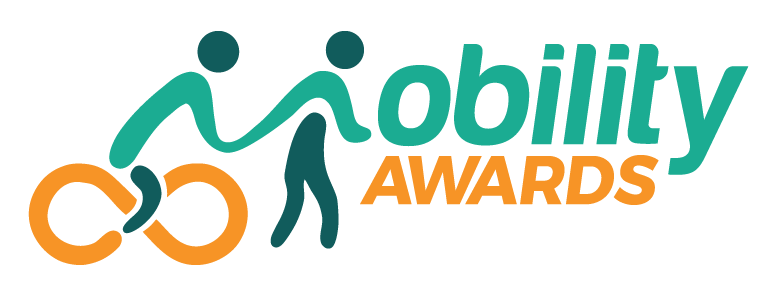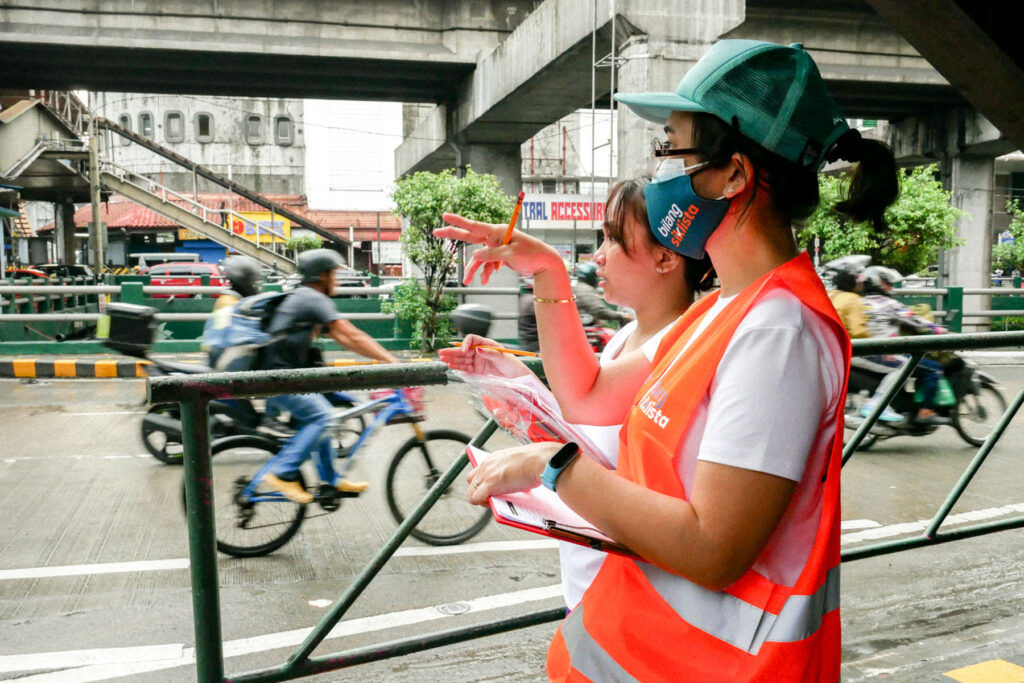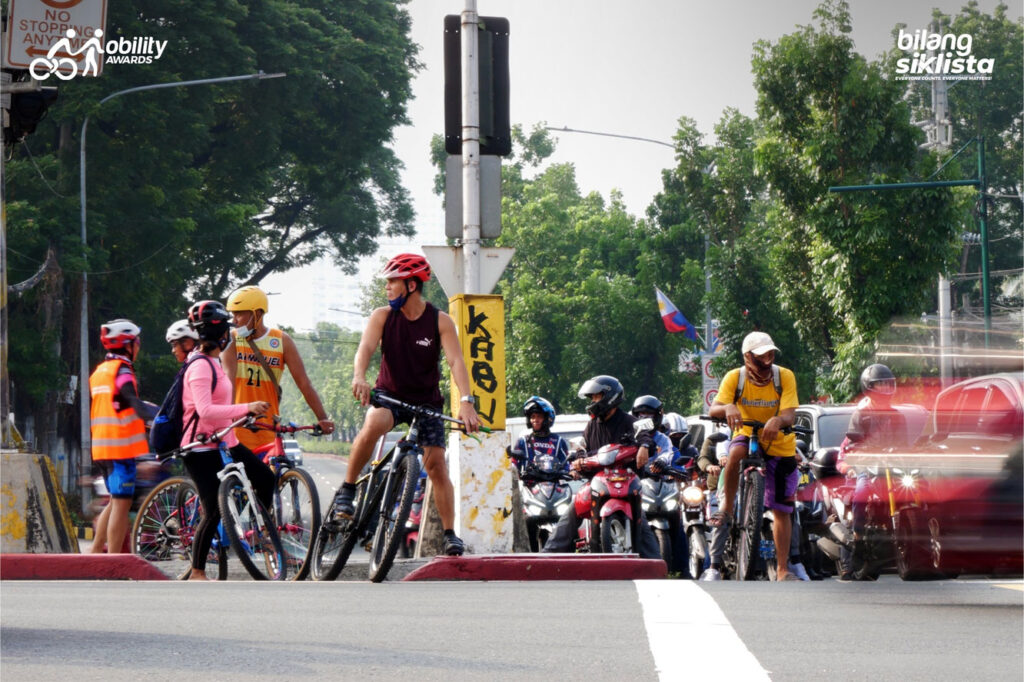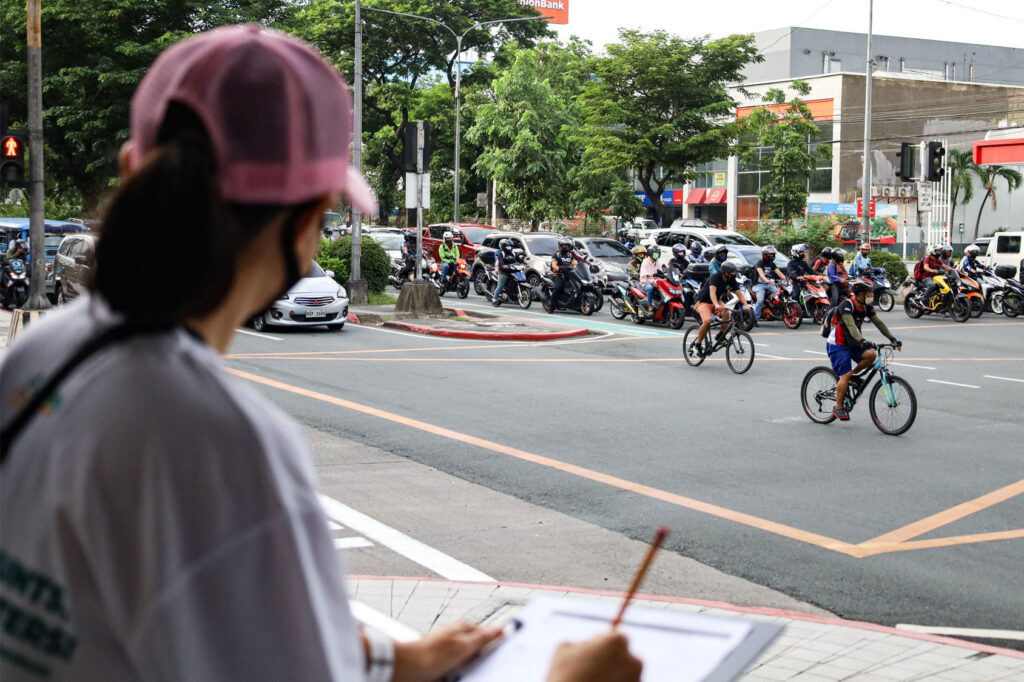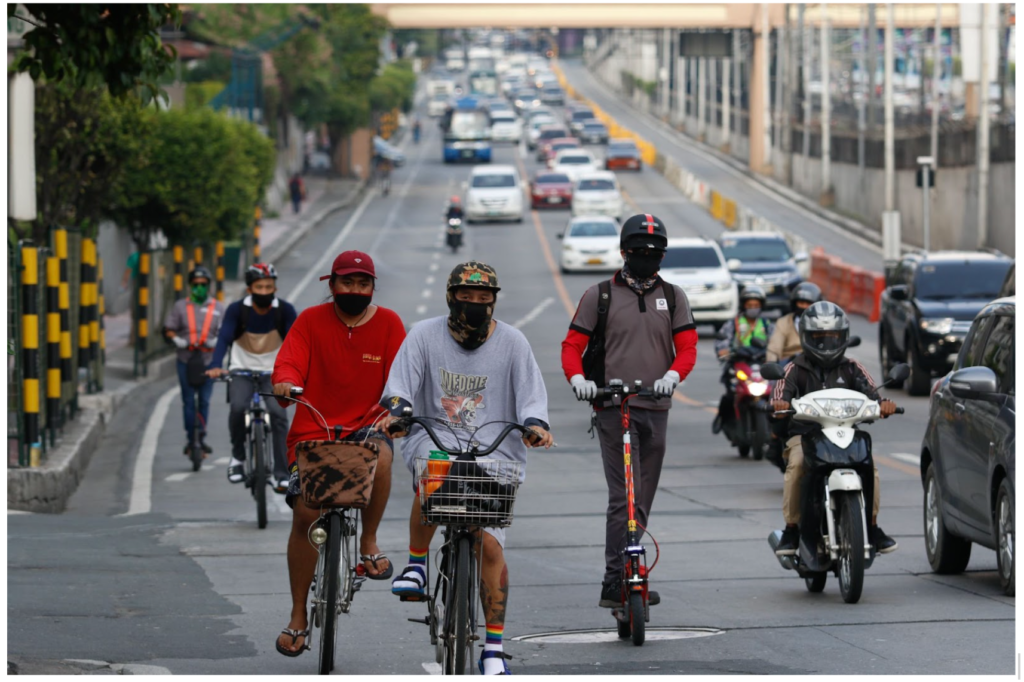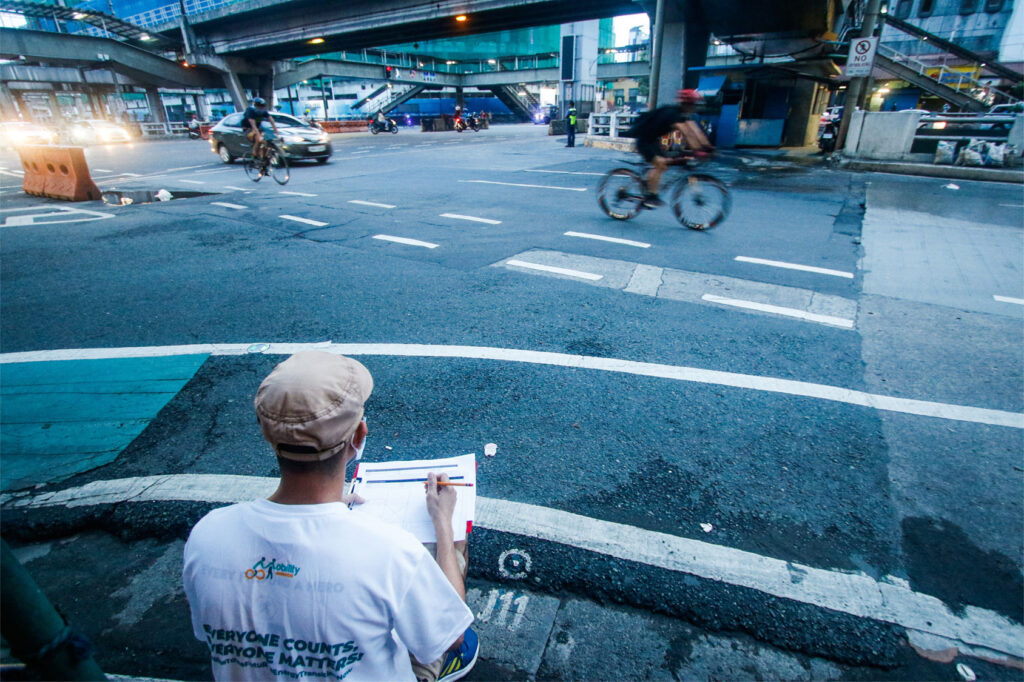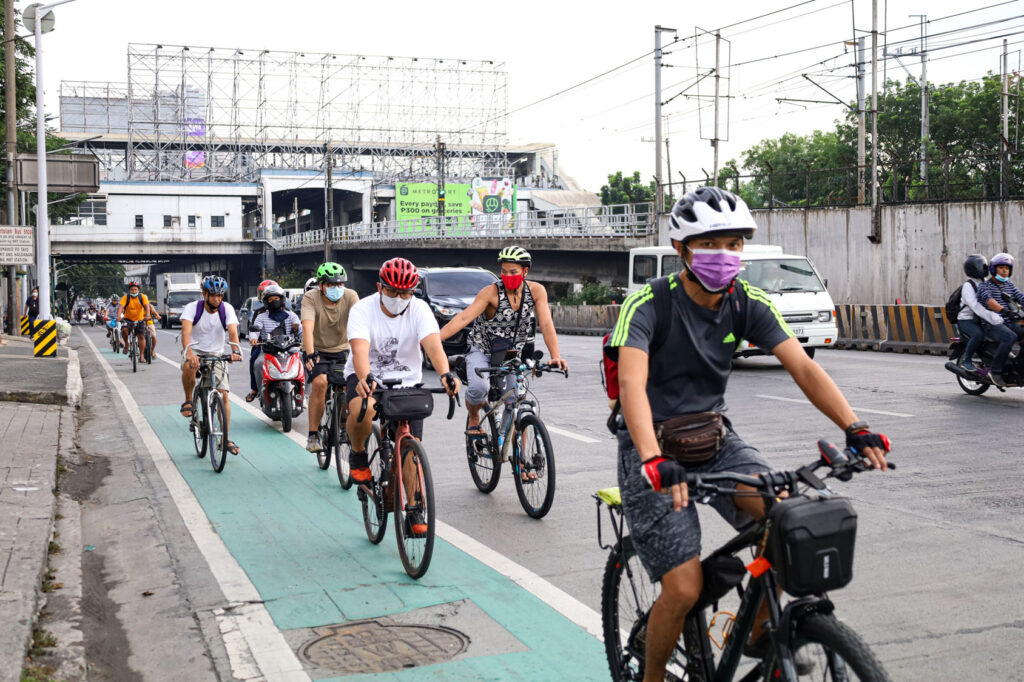The removal of bicycle lanes along EDSA is a recipe for gridlock, not progress. It is a step backward in terms of promoting sustainable transportation and a fair allocation of road space in the country.
In a radio interview last April 23, Metropolitan Manila Development Authority (MMDA) Chairman Romando Artes said that they are considering a proposal to completely remove bicycles from EDSA to replace it with an exclusive motorcycle lane along the highway.
Removing bike lanes not only disregards the needs and safety of cyclists, but also negates the significant investments made in establishing these lanes in the first place. It is only recently that the Department of Transportation’s Active Transport and Safe Pathways Program (ATSPP) allocated a substantial budget of P1 billion specifically for protected bike lanes and pedestrian walkways. It not only undermines the progress made through previous investments but also contradicts the plans laid out by the DOTr.
In October 2023, a survey by the Social Weather Stations (SWS) showed that one out of three households in the Philippines, approximately 10 million households, own at least one bicycle.
In our latest Bilang Siklista report, we counted 7,807 cyclists in 5 key points along EDSA. The count was done within just a 4-hour window from 6 to 8AM and 4 to 6PM. In Shaw Boulevard corner EDSA alone, we recorded 3,048 cyclists.
Even if we use the MMDA’s data as point of reference, 1,786 cyclists is far more than their pre-pandemic record of 835, signifying that if you “Build, they (cyclists) will come”.
We also underscore that even far from optimal bike lane infrastructure, the most vulnerable groups, especially 147 working women we have recorded, are the ones who are benefitting from the use of EDSA’s bike lanes, as it provides them with a relatively safer and more direct route to their destinations. The working women are in the best position to say that safety, economic, and time saving advantages of using bicycles are priority reasons that take precedence over arriving in sweaty under intolerable hot conditions.
Instead of removing the existing bike lanes, efforts should focus on maximizing the impact of the current investment by expanding and improving the bike lane network across the metro. This includes making the bike lanes safer, more connected, and addressing issues of motorcycle and four-wheeler’s encroachment on the bicycle lanes. By doing so, we can encourage more people to embrace cycling, thereby alleviating traffic congestion and fostering sustainable urban mobility.
All data points to the urgent need to make transport infrastructure in Philippine cities safer and more inclusive to the mobility needs of cyclists, pedestrians, and commuters or the majority of Filipinos who do not own cars.
In this regard, the Convenors of the Mobility Awards stand with the community of inclusive mobility and transport advocates in calling the MMDA to reject this regressive approach to fixing Metro Manila traffic. We urge the MMDA to work closely with the Department of Transportation in building a public transport system that serves everyone and address the issue of traffic congestion of EDSA, and other major routes of Metro Manila more comprehensively and consider all stakeholders, especially the mobility of the majority of the 88% of Filipino households who do not have cars. This is consistent with the Philippine Development Plan’s priority to consider sustainable transport and urban mobility as a priority;
We also urge the MMDA to make their bike counts consistent and expand their count observation points in key EDSA intersections along with how four-wheel and motorized two- wheelers are counted, monitored, and enjoin the broader community especially transport planners in the academe on data analysis.
We also call on the MMDA to develop viable comprehensive options before coming up with pronouncements that often send confusing messages to commuters.
Finally, the convenors of the Mobility Awards invites the broader Metro Manila community including the MMDA, Metro Manila cities, businesses and all active citizens to join the Bilang Siklista 2024 this coming June. We need all hands on deck to make Metropolis and city streets outside of Metro Manila inclusive where those who have less on wheels can be counted. Citizen count data is one of the time-tested tools that will inform us what is our best way forward.
ABOUT THE MOBILITY AWARDS
The Mobility Awards is convened by the Institute for Climate and Sustainable Cities (ICSC), The Climate Reality Project Philippines, 350 Pilipinas, MNL Moves, and the Pinay Bike Commuter Community. The Bilang Siklista Bike Count Program, as cited in this statement, is an initiative jointly led by the Mobility Awards consortium. For more information, visit mobilityawards.ph.
CONTACT: media@icsc.ngo

